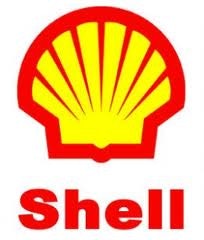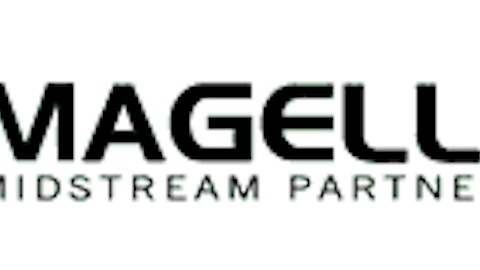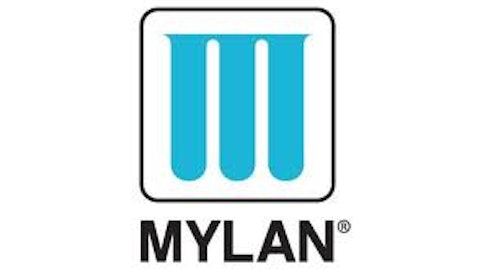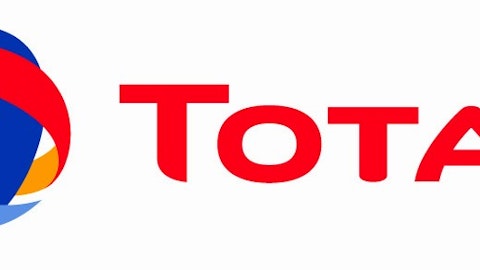The Dutch discount is the phenomenon of the comparatively low valuation of Netherlands traded stocks and has been around for a long time. There are a few reasons for this discount but those had been fading in recent years. However, recently the Dutch discount re-appeared in Dutch financial news because the main index lagged the broad European stock market over the past year.
The explanations for the recent Dutch discount can be found in the underperformance of some individual stocks that weigh heavy on the Amsterdam market index, as well as the deteriorating economy and uncertainty concerning government budget cuts. Some stocks in the slipstream of this discount have shown solid profits and a great international presence and might be unjustifiably affected by bearish market sentiments.
Let’s take a closer look at the largest company traded on the Amsterdam exchange: Royal Dutch Shell plc (ADR) (NYSE:RDS.A). It’s a major integrated oil company so there are many factors to look at in an analysis, but let’s keep it simple and effective. The geographical presence of a business like Shell isn’t tied to Europe, so it’s very well comparable with US traded oil companies.
The obvious metrics we should examine include Price/Earnings, Price/Tangible Book value and Return On Assets (ROA). ROA is important because this industry requires very high capital expenditures and the ROA signals the efficiency and organizational capabilities of the oil major. In addition, like any other industry, oil companies have one issue that can keep their executives up at night because of its importance and uncertainty. For big oil, it is the proven oil (and gas) reserves, as once stated in an interview by Lee Raymond, the former CEO of Exxon Mobil Corporation (NYSE:XOM). In fact, it’s so vital that in the multi-billion dollar oil company Royal Dutch Shell plc (ADR) (NYSE:RDS.A), a fraud concerning 20% of its proven reserves in 2004 caused a one day 7.6% drop in its stock price upon announcement.
So let’s take a look at the key metrics of Royal Dutch Shell plc (ADR) (NYSE:RDS.A) and some of its competitors. For the comparison Exxon Mobil Corporation (NYSE:XOM), Chevron Corporation (NYSE:CVX) and TOTAL S.A. (ADR) (NYSE:TOT) are the best picks because of the same nature of their business and similar size. BP is omitted due to ongoing legal uncertainties concerning the oil spill in 2010.
Valuation metrics
| P/E (TTM) | P/B | ROA | |
| Chevron | 8.9 | 1.7 | 11 |
| ExxonMobil | 9.1 | 2.5 | 14 |
| Shell | 8.1 | 1.2 | 7.3 |
| Total | 9.6 | 1.4 | 8.1 |
From this table it seems as if Royal Dutch Shell plc (ADR) (NYSE:RDS.A) is cheap compared to its French competitor when looking at P/E and P/B. From the figures in the table it also seems as if ExxonMobil trades at a fat book value premium because of its proven ability to achieve superior returns on assets (that have been like this for many years). The forward P/E’s for 2014 are in the 7-8 range for Shell and TOTAL S.A. (ADR) (NYSE:TOT) and 9-11 for Exxon and Chevron Corporation (NYSE:CVX). The forward P/E’s imply a bigger discount on Total and Shell, which is a sensible result from their low ROA.
Proven reserves
| Replacement* | Current total reserves | Remaining years** | |
| Chevron | 0.1 | 11.3 | 11.9 |
| ExxonMobil | 2.2 | 25.2 | 16.3 |
| Shell | 1.7 | 13.6 | 11.0 |
| Total | -1.4 | 11.4 | 13.5 |
All figures are in billion barrels of oil equivalent. Current reserves are official estimates filed with the SEC.
* Net reserve replacement in the past 4 years
** At current production
The table above shows Royal Dutch Shell plc (ADR) (NYSE:RDS.A) and Exxon as the most successful at replacing proved reserves. Also, Exxon is clearly the winner, both in reserve replacement and total reserves. Total is the loser of the selected four with a negative replacement rate. Being able to add reserves is a key capability for any oil major. There are multiple factors that influence that key capability. What helps Exxon and Shell is the presence in less developed countries on the field of energy. This was a primary reason why Exxon pursued the merger with Mobil. Technology is also a factor as most oil in an oilfield can’t be economically extracted due to pressure depletion. So the better the production technology, the more reserves an oil company can add.





